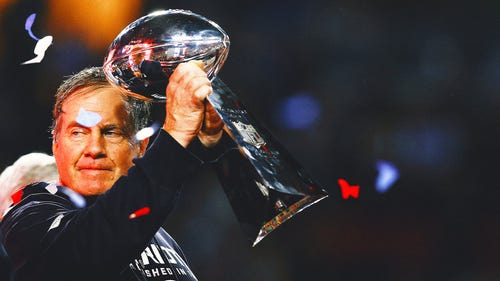
After 2 years away from NFL, Pitcock resurfaces
Quinn Pitcock's self-doubts are gone. So is his two-year disappearance from the NFL.
The once-promising Colts defensive tackle resurfaced Thursday with a free-agent contract from the Seahawks, two years after he stunned Indianapolis by abruptly leaving the sport at age 24.
He sought mental-health treatment after his departure for what he says was anxiety and mild depression.
''Last year I was getting treatment, working out and hanging out at the swimming pool doing one-and-a-half dives off the board. I've got a couple 9-year-olds I was swimming with, doing gainers,'' Pitcock said, speaking frankly minutes after restarting his career with his first preseason or regular-season practice since January 2007.
''I got back to my inner child. Before, I was worried about football. Now, I'm not so worried. I just live life to the fullest.''
He said Thursday was the first time he was so happy in football in maybe a decade, since his days growing up in Piqua, Ohio. Warding off a huge, live, charging blocker instead of yet another foam-filled training bag never felt so good.
''It's been years, back toward high school,'' the 2006 All-American said of being happy in the game. ''I had a tough time going to camps.''
His struggles peaked in the summer of 2008. Pitcock doubted everything, including himself.
The three-year starter for Ohio State didn't believe he was mentally ready to contribute as a regular on Indianapolis' defensive line.
That was even though he'd played in a majority of the games the previous season as a rookie on a 13-3 division champion. He emerged after former league sacks champion Dwight Freeney went down for the Colts with a season-ending foot injury. It didn't matter that Indy's coaches were planning on him to be a primary contributor in '08.
''I didn't think I was good enough mentally for the team,'' he said. ''I thought it was best for my team, if I wasn't ready. So I left. Looking back, I wasn't so stubborn and finally got some help.''
He's still in counseling. Pitcock has learned many athletes deal with depression and anxiety, but most do it privately and internalize it ''because in our society, alpha males try not to show their weaknesses.''
Now, he is trying to get fellow ''alpha males'' to confront any signs of depression and seek help.
''No one great got anywhere by himself,'' Pitcock said. ''That was my big problem. I thought I could do it on my own.
''I was seeking help for the right time when I felt mentally ready to come back, and then I waited until physically. And now, here I am. I'm still not fully there. I mean, that's what camp is for, physically for running out here for conditioning - and mentally just seeing my people. It's a process.''
He's here after letting the NFL know this summer he was ready to return. The Colts released him late last month from their reserve-did not report list.
He knew Seahawks defensive coordinator Gus Bradley and defensive line coach Dan Quinn. The assistants had scouted him before the 2008 draft, in their previous NFL jobs with the Buccaneers and the Jets, respectively.
Instead of nose tackle, he is here to play a ''three-technique'' defensive tackle - a slant-into-the-inside-gap guy - for the first time since he was at Ohio State.
It worked out well then. Playing that way for the Buckeyes, he became a third-round pick for a championship-caliber team the following spring.
''I'm going to try to use the athletic ability I think I have. I know the system. I know some of the coaches,'' he said. ''I felt I had a good chance here.''










